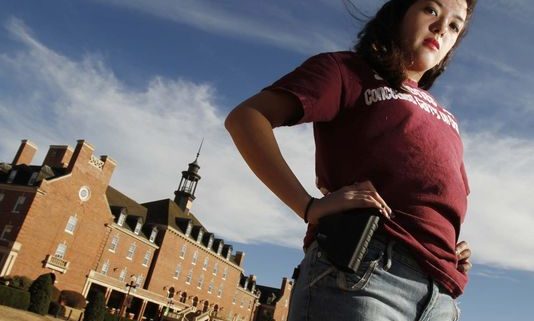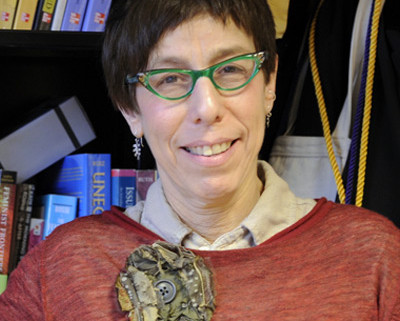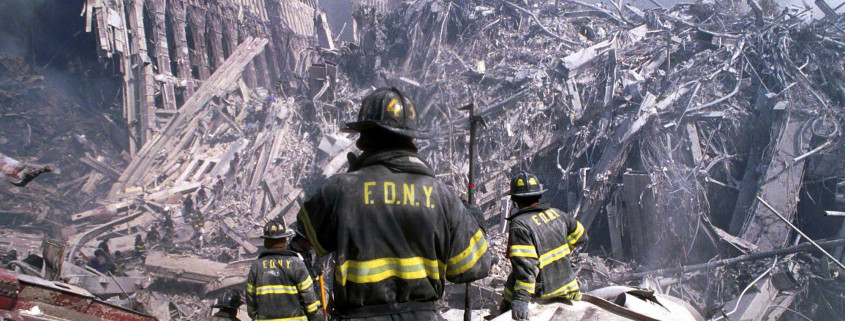Texas Professors Sue to Deny Students 2nd Amendment Right
Three professors working in the Liberal Arts department at The University of Texas at Austin are fighting a Texas law that allows students to carry concealed handguns in their college classrooms.
Senate Bill 11, allowing concealed handgun license holders 21 and older (or 18 if active military) to carry in campus buildings, was signed by Texas Gov. Greg Abbott, a Republican, on June 23rd of 2015. The law went into effect Aug. 1 this year.
The professors requested a preliminary injunction to block the new campus carry law and had filed suit on July 6 against the attorney general of Texas, Ken Paxton; the president of the University of Texas at Austin, Gregory Fenves; and members of the University of Texas Board of Regents.
U.S. District Judge Lee Yeakel made no ruling during the court hearing after lawyers for the professors and for the university struggled to agree on the university’s rules and policies on concealed weapons, the Austin American-Statesman reported. Instead, Yeakel requested more information to clarify university concealed weapon policies.
“Compelling professors at a public university to allow, without any limitation or restriction, students to carry concealed guns in their classrooms chills their First Amendment rights to academic freedom,” the lawsuit says.
Paxton, the Republican Texas attorney general, called the professors’ lawsuit “frivolous.”
“There is no legal justification to deny licensed, law-abiding citizens on campus the same measure of personal protection they are entitled to elsewhere in Texas,” Paxton said in statement.
Paxton filed a response with the United States District Court for the Western District of Texas Austin Division on Aug. 1 in opposition to the University of Texas professors’ request for preliminary injunction.
The professors “have no right under the First Amendment to violate the Second Amendment rights of students,” Hans von Spakovsky, a senior legal fellow at The Heritage Foundation, told The Daily Signal. “And it is insulting to law-abiding gun owners—categorizing them as crazies who will kill someone over a debate in a classroom.”
A 1995 Texas law allows concealed handguns to be carried in public, including on the grounds of public college campuses, but previously excluded campus buildings, the Statesman reported.
Under the new law, public institutions of higher education cannot “generally” prohibit license holders from carrying concealed weapons, but are allowed to establish “rules, regulations, or other provisions” restricting guns from places like labs with dangerous chemicals and regarding the storage of handguns in residential dorm facilities.
Moore, one of the plaintiffs, who teaches English and gender studies, told NPR that “it’s impossible to do our jobs with this policy in place.” She continued:
We all teach subject matter that is quite sensitive, and we all use very participatory, you know, pedagogically sound methods of trying to teach students how to state their views on controversial subjects, challenge one another and stand up for what they believe in.
“I am genuinely not equipped to keep students safe from a firearm in my classroom,” Moore added.
Brian Bensimon, Students for Concealed Carry’s director for the state of Texas, told The Daily Signal that the professors’ lawsuit is “perplexing.”
“Concealed carry is allowed in our state capitol,” Bensimon said. “There’s plenty of open debate and lively discourse there.”
Allison Peregory, a 21-year-old University of Texas pre-law student, plans to get a state-issued concealed weapon license and carry on her campus, The Dallas Morning News reported.
“It’s important for people to have their right to self-defense be protected,” Peregory said, according to the Morning News.
Aug. 1, the date the bill went into effect, marked the 50th anniversary of a mass shooting that took place at the University of Texas at Austin.
“It is quite ironic; they [the professors] are apparently unaware that private citizens, including students, helped police in 1966 stop Charles Whitman, the University of Texas Tower sniper, when they grabbed their guns and started firing at the sniper in the tower,” Heritage’s von Spakovsky said. “One of those Texans, Allen Crum, even climbed to the top of the tower with a rifle to assist the policeman who eventually killed Whitman.”
Students for Concealed Carry is trying to block a University of Texas rule that allows professors to ban concealed weapons from their individual office space. The group filed a complaint with Paxton on Aug. 4.
“Gun control advocates think that gun bans will make people safer,” Dr. John R. Lott, a staunch gun rights advocate, former Professor at The University of Chicago, Yale University, and the University of Maryland, as well as founder of the Crime Prevention Research Center ( a non-profit formed to study the relationship between gun laws and crime ) and author of “The War on Guns,” wrote in an op-ed. “But banning guns only ensures that law-abiding good citizens are disarmed, not the killers. Instead of bans improving safety, these bans attract killers and make it easier for them to commit crimes.” A study done by Harvard, a well-known and revered university by the left, concluded that, “The more guns a nation has, the less criminal activity.” The study looked at armed crime rates, including murder, in nations that have total bans on gun ownership compared to nations that have high rates of gun ownership among their citizens.
In the official policy written by Gregory Fenves, the President of the University of Texas at Austin, you will find some other strange policies that have been adopted, specifically, “A license holder who carries a semiautomatic handgun on campus must carry it without a chambered round of ammunition.” While the school intends the rule to be yet another safety measure, it goes against what most Texas firearms instructors, police academies, and the military teach for self-defense.
It’s generally accepted that—in the context of self-defense shootings, which typically happen at close range—one’s ability to quickly and cleanly present from the holster is more important than even one’s aim. Being forced to draw one’s weapon and then load the first round (a procedure that typically takes both hands) is a serious impediment to being able to quickly and cleanly present to the target. Chambering a round in the heat of battle also denies the defensive shooter an opportunity to perform a chamber check—a safety check typically performed when loading a firearm. At close contact (any distance close enough for an assailant to grab the defender’s gun), having an empty chamber can essentially render the defender’s handgun useless.
This policy, also going in tandem with another rule to require that guns be kept in a holster that covers the trigger and trigger guard, goes further than any other university in prescribing how the guns should actually be carried. When asked by gun rights advocates groups which experts the school relied upon to define these two policies, the school declined to do so. If UT-Austin President Gregory Fenves wishes to act responsibly, he will modify these two policies. If he does not, the policies will almost certainly face legal challenges—challenges likely to succeed and likely to cost the university significant time and money.




